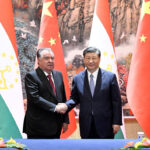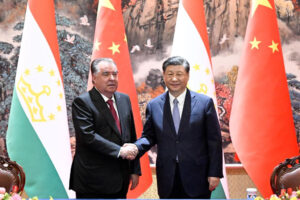The American humour scholar Lawrence E Mintz says that one function of the stand-up comedian is to take on the role of “our comic spokesperson, as a mediator, an “articulator’ of our culture, and as our contemporary anthropologist”. At their best, Mintz suggests, comedians profoundly articulate the issues of our times and convey truths about the human condition through laughter. Indeed, the rise of Hasan Minhaj’s comedic career suggests that he was — willingly or unwillingly — appointed such an arbitrator of the trying times Muslim Americans have endured in the 21st century.
In a recent The New Yorker article, however, journalist Clare Malone takes seriously the task of fact-checking Minhaj’s stand-up specials – especially his experiences of racial prejudice – and implies that his admissions that they may have been exaggerated or fabricated fall short of an ethical standard. Whose ethical standard is perhaps a pertinent question here, but Malone’s piece seems unwilling to entertain this line of inquiry. The premise seems to be that stand-up sets are generally honest and Minhaj’s are not.
Comedians have nonetheless long adhered to the claim that their art allows them to tell the truth through lies, and the more inventive and clever the lies masquerading as truth(s), the more skilled one is as a comedian. Exaggeration, irony, embellishments, reductio ad absurdum, caricatures, stereotypes, accents, mannerisms have all been valuable weapons in a comic’s arsenal, and Minhaj has used several of these with what I would deem as having mixed results – where his punchlines have exposed white America’s paranoias around their Muslim Other, he successfully lampoons the bigotry and hypocrisy that characterises America’s long-vexed relationship with Islam. Where he has taken on figures of political authority, as he often attempted to do in his Netflix show The Patriot Act, the trivialising overtones of his prank-style humour detract from the serious harm these global leaders inflict on their citizens. Regardless, Minhaj has honed his skills working with some of the best in American comedy and has arguably not strayed from the comedic conventions of using exaggeration to cultivate an authentic persona that arbitrates our understanding of American life.
Perhaps then, it is useful to return to the other role that Mintz suggests stand-up comedians take on — that of a negative exemplar. Playing the fool, the rascal, the coward, the drunk, the bitch, the shrew, the liar, allow such comedic personas to reveal ugly or absurd truths about being human so they can be ridiculed, laughed at, and symbolically “punished”. From Louis C K’s loser-like masculinity to Joan River’s caustic cattiness to George Carlin’s misanthropic bitterness, canonically great stand-up comedians have consistently been willing to look foolish, diminished, flawed, even irredeemable for the larger agenda of enlightening while they entertain. Have Minhaj’s performances done the same?
Certainly, in Homecoming King and The King’s Jester, his two acclaimed Netflix specials, Minhaj dances around this line of looking foolish adroitly. Anecdotes in Homecoming King about his parents are recounted as unfortunate things they have done to him — an unexpected sister arriving from India, her getting the birthday gift meant for him, his secretly wanting to be a comedian against their wishes. And of course, an infamous anecdote about his white girlfriend’s family rejecting him as their daughter’s prom partner at their doorstep. Years later, he narrates, he remained hung up on her after finding out she was dating another Indian guy and was willing to stand up to her parents for doing so. (Malone’s article tracks down the woman who claims that not only is the prom rejection based on his race fabricated but also that she and her family faced online threats and doxing for years as Minhaj did not disguise her or her partner’s identity sufficiently.)
In The King’s Jester, more such narratives abound of the misfortunes resulting from his marginalised Muslim identity and his willingness to go after powerful figures such as the crown prince of Saudi Arabia and Narendra Modi. (Again, Malone’s article sums up the many embellishments littered throughout the special.) Even as Minhaj is willing to laugh at his own temerity, both stand-up specials are scripted to fundamentally make him an exemplar in speaking truth to power as a Muslim-American taking on authoritarians (even brown ones) and the American state — not a negative exemplar but a positive, heroic one. This is what empowers Minhaj to claim directly to Malone that he drives home an “emotional truth” not necessarily based on actual events.
With such a self-fashioning, Minhaj’s comedic persona risks coming across as arrogant, unwilling to engage with the troubling framing of his former girlfriend as a “white princess” whose rejection of him is seen entirely through the lens of race and not masculinity or sexual entitlement. Or even with the uncomfortable question of manipulating his audience’s – particularly other Muslim Americans’ – empathy and impulses towards social justice. These narrative arcs are also deployed by two fellow Muslim-American comedians, Aziz Ansari and Kumail Nanjiani, who have also used romance with white women — real and fictional — as a coming-into-their-own brown male story arc (leading one writer on Jezebel to go, “I’m Tired of Watching Brown Men Fall in Love With White Women Onscreen”).
Undoubtedly, Minhaj has some hard questions to ask himself — not forgetting the accusations that The Patriot Act created a toxic workplace where crew members were mistreated. But this situation also points towards Minhaj’s success in cultivating a desi-ness as truthiness, an ersatz emotional truth felt with your gut and not your brain (as The Colbert Report once declared). Minhaj’s visibility as a desi Muslim in mainstream comedy who paints himself as being a victim of the system invites feel-good affective recognition from liberal desi audiences. In this, he has broken no rules of comedy, but has perhaps risked less as a comedian. Such an environment, where diverse representation is constantly parsed through target audiences and strategic messaging, continually limits how its marginalised members may play with fiction or exaggeration in comedic form like white artists always have, especially involving trauma and resistance. When such “lies” are caught, they are to be held accountable through fact-checked journalism no less hallowed than The New Yorker. Perhaps this, more than anything else, has indeed made Minhaj an unintended articulator of the media culture in the United States.
Source: THE INDIAN EXPRESS











